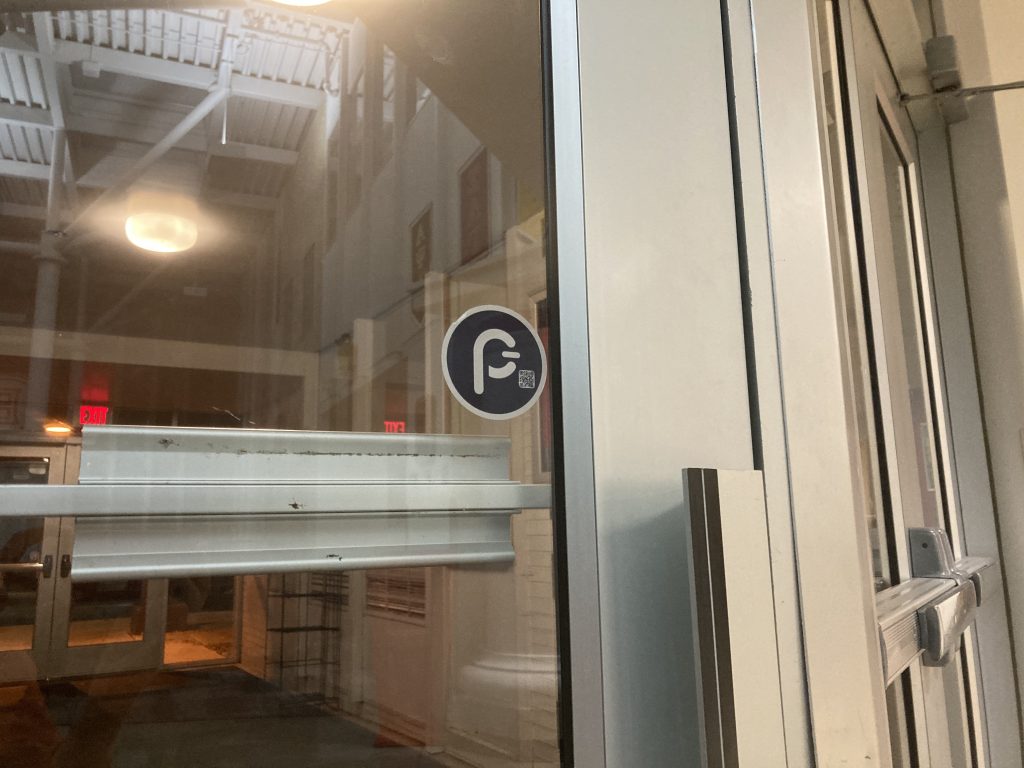It came to Pierre Paul in a dream: an innovation that would change the way Bradley’s campus functioned for the better.
The invention goes by the name of Push and allows users to open doors with a Push logo on them approximately 20 feet in advance with a device worn on the wrist. Push will aid users of mobility aids like wheelchairs, crutches and walkers, as well as users with invisible disabilities.
“Push is a universal remote that can turn ADA compliant doors — any door with a motor, really — into an automatic door for up to about 20 feet away,” Paul said.
Paul, who graduated from Bradley with a master’s degree in non-profit organizational management, said that he had a dream one night that sparked the idea of Push. In the dream, he was walking up to a door on campus with his hands full of books and papers, which made it impossible for him to open the door. Luckily, he had what would become the first version of Push on him.
“I was walking into Wyckoff Hall and I had something on my wrist, like a watch, and I pressed against my face and it opened the door because my hands were full,” Paul said. “I said, ‘Okay, that’s cool.’ I woke up and contacted some Bradley professors in the engineering department.”
The actual development process of Push did not start in the dream, but with a team. Push’s team consisted of two electrical engineers — Brandon Adduci and Ben Stravinskas — and Bradley alumnus Matthew Kirchoff.
Paul worked closely with his team to complete the development of his dream invention, starting out with a stripped-down beta version of Push that was created in two weeks.
“It was just a simple bread board that when you press the button, a light illuminated,” Paul said.
The team wanted to make sure that the device would cater specifically to the needs of those with mobility impairments. Paul didn’t want to force any student to conform to Push, but rather have the device conform to them. He then communicated with students on campus who had been affected by the lack of accessibility in Bradley buildings.
“We have a member of our team with muscular dystrophy [and] we have a member of our team with quadriplegia,” Paul said. “They bring expertise not only from an academic standpoint but they are the community we are aiming to serve.”
In light of the campus’s struggles with accessibility, Paul wanted to bring Push to Bradley to showcase how the university does care for its students and help them change the way they are currently operating.
“I want Bradley to feel more inclusive,” Paul said. “I want them to feel like their university respects their differences and is willing to accommodate and provide new technology to help them not only showcase those differences but be comfortable with themselves.”
His decision has paid off. Currently, there are 15 Push users on campus and 35 who are on a waitlist with hopes for their bracelets to come by the end of the week.
Bradley, however, is not the only place that has embraced the change that Push is bringing. Illinois Central College, Knox College, Butler University and Ep!c, a disability services and support organization in Peoria, have all installed test versions of Push.
Prior to Push, Paul already had experience with creating devices to help those not only on campus but in the real world. He was awarded first place in Bradley’s 2020 Big Idea Competition for his product We Hear You, an American Sign Language (ASL) translator that turns hand signs into written text-and-speech and vice versa.
“This will help remove the communication barrier for many who use ASL at coffee shops, grocery stores, concert venues, among many other places,” the product’s webpage said.
All in all, Paul doesn’t want to stop with just having Push in the Midwest — he wants to spread change and bring accessibility to the entire world.
“I hope that it provides ease of mobility and comfortability … whether you are immunocompromised or whether you have a physical exceptionality or whether you would like to maneuver a little bit more effortlessly.”







